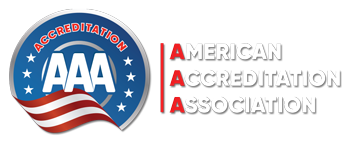Accreditation serves as a cornerstone in the realm of education, ensuring that education providers uphold high standards of quality and effectiveness. It is a rigorous process that involves evaluating institutions based on predetermined education program standards. These standards play a pivotal role in guiding Education providers toward continuous improvement and fostering a culture of excellence in education. By adhering to these standards, educational institutions not only enhance their reputation but also contribute to the holistic development of their students.
Defining Education Program Standards:
Education program standards are a set of benchmarks and criteria that educational institutions must meet to earn accreditation. These standards encompass a comprehensive range of aspects that contribute to the overall quality of education provided by the institution. They serve as a framework for evaluating various dimensions, including curriculum, teaching methods, student support services, facilities, leadership, and more.
Curriculum Excellence:
One of the fundamental components of education program standards is the design and implementation of a robust curriculum. Accreditation bodies expect institutions to offer a well-structured curriculum that aligns with the latest educational research, industry trends, and societal needs. A well-designed curriculum not only covers a breadth of subjects but also promotes critical thinking, problem-solving, and creativity. It takes into account different learning styles, ensuring that students are engaged and motivated to learn. The curriculum should also incorporate real-world applications and prepare students for the challenges they will face beyond the classroom.
Innovative Teaching Methods:
Education is not solely about what is taught but also how it is taught. Accreditation standards emphasize the importance of employing effective and innovative teaching methods. These methods cater to the diverse learning styles and preferences of students, promoting active engagement and deeper understanding. Educators are encouraged to incorporate technology, interactive learning materials, and hands-on activities to enhance the learning experience. Effective teaching methods not only impart knowledge but also nurture critical skills such as collaboration, communication, and adaptability.
Holistic Student Support:
An accredited institution prioritizes the well-being and success of its students. Education program standards emphasize the provision of holistic student support services. These services include academic counseling, career guidance, mental health support, and accommodations for students with special needs. Recognizing that each student is unique, institutions ensure that resources are available to address a range of individual requirements. By fostering a supportive environment, education providers empower students to overcome challenges and reach their full potential.
Infrastructure and Facilities:
A conducive learning environment is essential for effective education. Accreditation standards assess the adequacy and quality of facilities and infrastructure. Well-maintained classrooms, libraries, laboratories, and technological resources contribute to a positive learning experience. Institutions are expected to provide a safe and accessible environment that facilitates learning and fosters creativity.
Leadership and Governance:
Strong leadership is integral to the success of any educational institution. Accreditation standards focus on the quality of leadership and governance within the institution. Effective leaders promote a culture of continuous improvement, innovation, and accountability. They ensure that the institution’s goals and values align with the education program standards. By fostering a culture of collaboration and shared vision, leaders contribute to the overall quality and reputation of the institution.
Continuous Improvement:
Education program standards emphasize the concept of continuous improvement. Accredited institutions are expected to engage in ongoing self-assessment and evaluation to identify areas for enhancement. This culture of self-reflection leads to iterative refinements in curriculum, teaching methods, student services, and more. By embracing change and adapting to evolving educational landscapes, institutions remain relevant and provide a high-quality education.
Conclusion:
Education program standards are the foundation of education provider accreditation, ensuring that educational institutions offer quality and excellence in their programs. These standards encompass various dimensions of education, including curriculum design, teaching methods, student support services, facilities, and leadership. By adhering to these standards, institutions not only earn accreditation but also contribute to the holistic development of their students and the advancement of society as a whole. Through a commitment to continuous improvement and the pursuit of excellence, accredited education provider s become beacons of quality education, preparing students to thrive in an ever-changing world.
